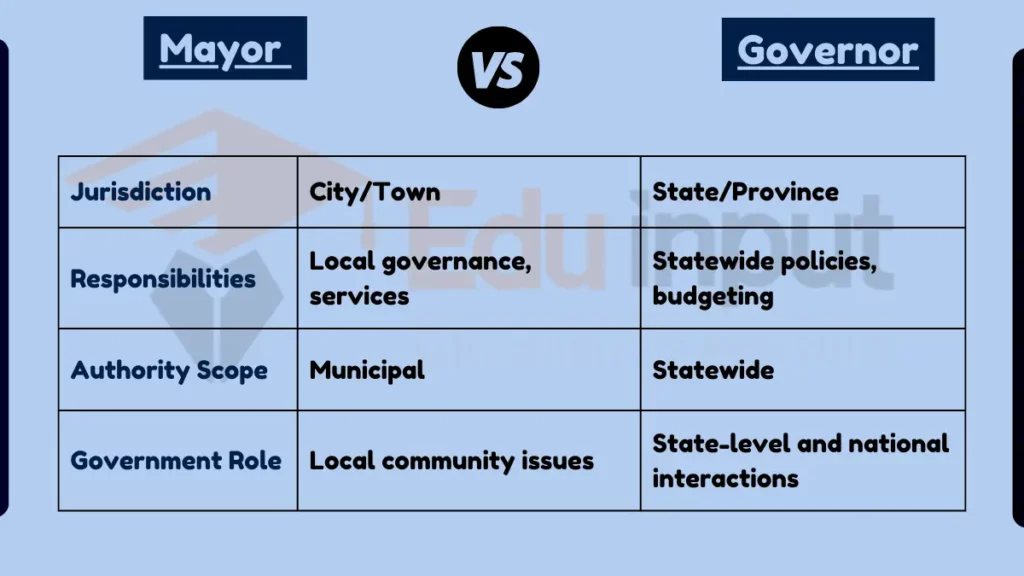Difference Between Governor and Mayor
A mayor leads a city or town. A governor leads a state or province. This is the basic difference between governor and mayor.
The mayor vs governor comparison shows key differences. A mayor manages local services, city laws, and the municipal budget. A governor controls state policies, state budget, and government departments.
The difference of governor and mayor is in their power and area of control. A governor handles bigger responsibilities than a mayor. That is why many ask, who is higher mayor or governor? The answer: a governor is higher.
So, which is higher governor or mayor? Clearly, the governor holds more authority. The difference between mayor and governor lies in their level of government.
Still confused about the governor and mayor difference? Remember: mayors work in cities. Governors work in states.
This is the clear mayor and governor difference everyone should know. Understanding the difference between governor and mayor helps in learning how government works.

Comparative Analysis:
- Jurisdiction:
- Mayor: City or town.
- Governor: State or province.
- Responsibilities:
- Mayor: Local governance, city services, local ordinances.
- Governor: Statewide policies, state budget, state departments.
- Scope of Authority:
- Mayor: Limited to municipal boundaries.
- Governor: Encompasses the entire state or province.
- Role in Government:
- Mayor: Focuses on local issues and community needs.
- Governor: Addresses broader state-level issues, including interactions with national government.
- Election and Term:
- Mayor: Elected by city residents, term length varies by city.
- Governor: Elected by state residents, term length varies by state.
Table Summary of Mayor vs Governor
| Feature | Mayor | Governor |
|---|---|---|
| Jurisdiction | City/Town | State/Province |
| Responsibilities | Local governance, services | Statewide policies, budgeting |
| Authority Scope | Municipal | Statewide |
| Government Role | Local community issues | State-level and national interactions |
| Election/Term | Elected by city residents | Elected by state residents |



Leave a Reply